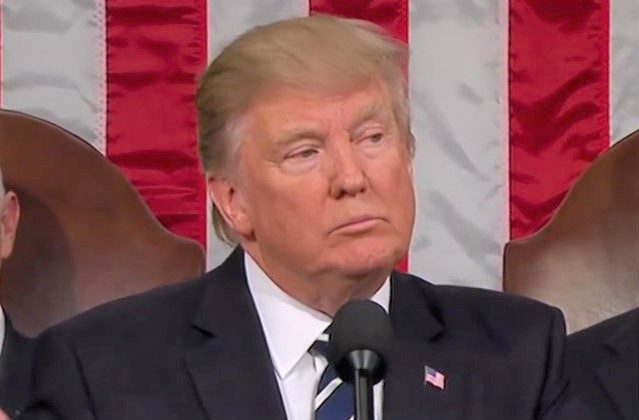 All day, it seems like the big topic on a lot people’s minds is the Presidential pardon power. A Washington Post report says that President Donald Trump has been asking about it, and his lawyers have been brushing up on it. We here at LawNewz have been giving it plenty of thought as well. Now, University of Chicago Law Professors Eric Posner and Daniel Hemel are weighing in, saying that if President Trump wanted to issue pardons for his family and friends, he could do it, but it could land him in a world of trouble.
All day, it seems like the big topic on a lot people’s minds is the Presidential pardon power. A Washington Post report says that President Donald Trump has been asking about it, and his lawyers have been brushing up on it. We here at LawNewz have been giving it plenty of thought as well. Now, University of Chicago Law Professors Eric Posner and Daniel Hemel are weighing in, saying that if President Trump wanted to issue pardons for his family and friends, he could do it, but it could land him in a world of trouble.
The professors said in a New York Times op-ed that while the presidential pardon power is extremely broad, letting Trump absolve “anyone for any crime at any time,” there is reason to believe that abusing that power could result in criminal charges. For instance, they say, selling pardons for cash would violate federal bribery law. Since that’s already one example of how a pardon be deemed illegal and improper, the professor takes a small jump from there to say that issuing a pardon for “corrupt” purposes—like for a cover-up—could qualify as obstruction of justice, a crime that could result in not just impeachment, but criminal charges against POTUS.
Of course, Posner and Hemel acknowledge that a President can grant pardons “based on considerations of mercy or public welfare.” If Trump pardoned his son-in-law or any of his other aides, it would then be a question of whether he did it “out of the goodness of his heart, or covering up for his family, his associates, and himself.”
It would surely be difficult to bring a solid case against Trump for this, for two reasons. One, which the professors bring up, is that “prosecutors and courts would give wide latitude to a president in evaluating his pardon decisions.” The other is that there’s still no known evidence that there’s anything to cover up in the first place. Yes, there is evidence of some collusion between Trump’s campaign and Russia, with the revelation that Donald Trump Jr., Jared Kushner, and Paul Manafort held a meeting with Russians with hopes of acquiring information that would damage Hillary Clinton‘s presidential bid. However, there has yet to be any revelation of evidence of collusion that satisfies any criminal statutes. So without evidence that a crime was committed, it would be tough to prove that pardoning the people involved would be a cover-up.
On top of all this, is that even if Trump did break the law by granting pardons to his close aides, there is an argument that he could just pardon himself for it. Whether a sitting President can do that is up for debate, but it may not be worth the trouble, since by taking a pardon, Trump would be admitting that he did something wrong, which in itself could result in impeachment.
Ronn Blitzer is the Senior Editor of LawNewz.com and a former prosecutor in New York City. Follow him on Twitter: @RonnBlitzer